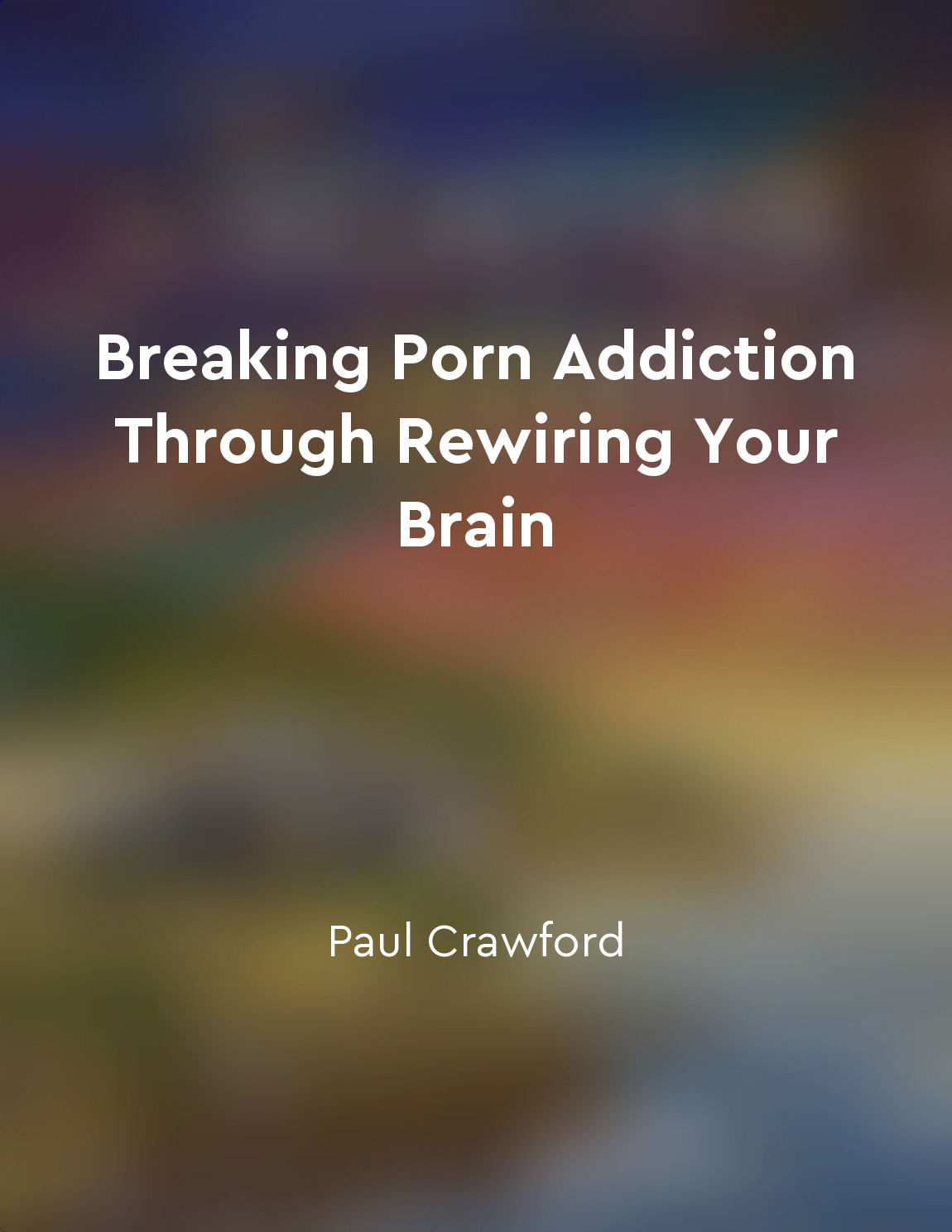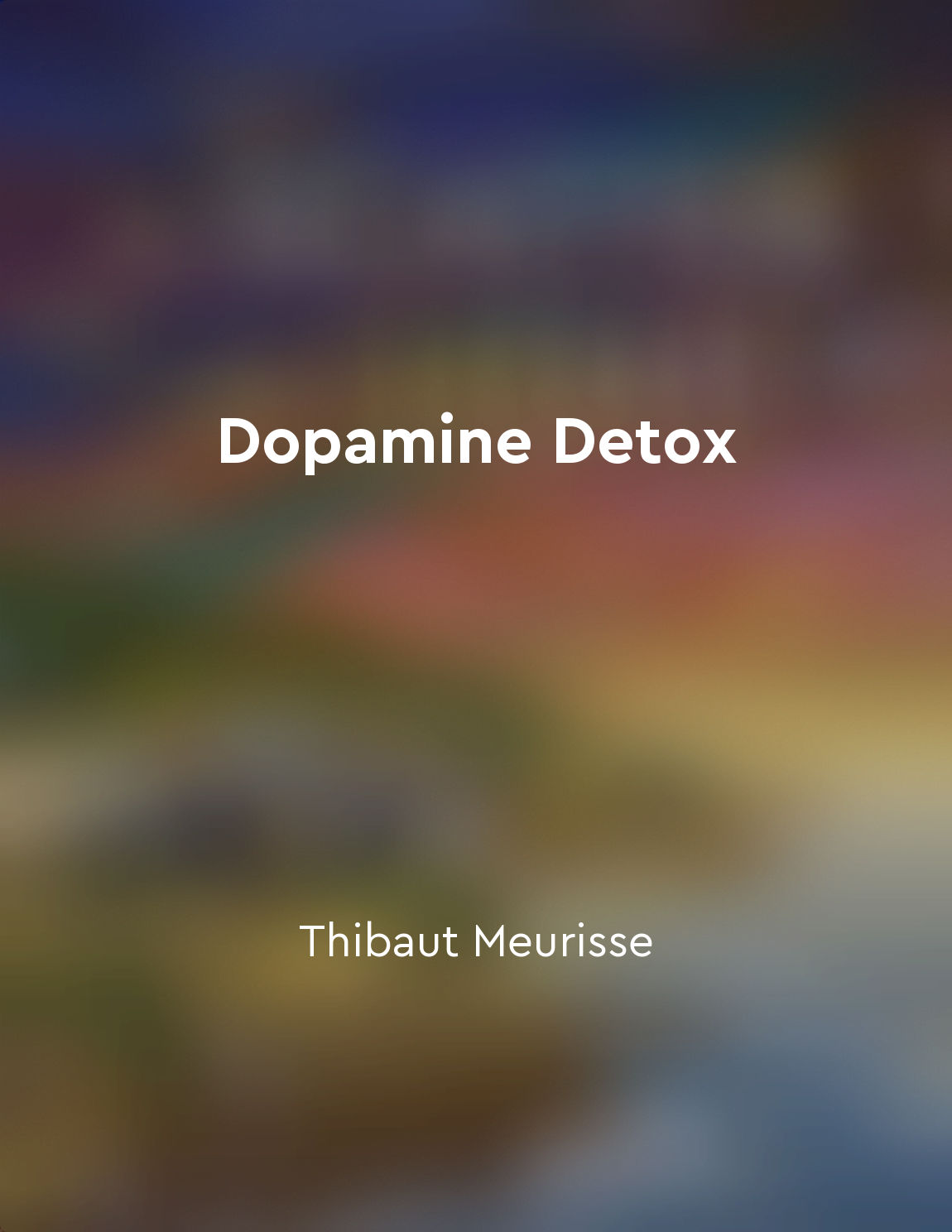Audio available in app
Dopamine fasting can reset brain receptors from "summary" of Dopamine Nation by Dr. Anna Lembke
Dopamine fasting involves abstaining from activities that stimulate the brain's reward system, such as social media, junk food, and excessive screen time. This temporary break allows the brain's dopamine receptors to reset, becoming more sensitive to dopamine once the fast is over. With repeated exposure to high levels of dopamine from constant stimulation, the receptors can become desensitized, requiring even more stimulation to feel pleasure. By taking a break from these activities, individuals can potentially retrain their brains to be more responsive to natural rewards. This can help reduce cravings for instant gratification and lead to a more balanced dopamine system. Dopamine fasting is not a one-size-fits-all solution, but rather a tool that can be used in conjunction with other strategies for managing dopamine-driven behaviors. Some proponents of dopamine fasting recommend starting with short periods of abstinence, gradually increasing the duration as tolerance builds. This approach allows individuals to ease into the process and minimize potential withdrawal symptoms. It's important to note that dopamine fasting is not a cure-all and should be combined with other lifestyle changes for long-term benefits.- It can be a valuable tool for those struggling with addiction, impulsivity, or mood disorders. By giving the brain a chance to reset, individuals may find themselves more in control of their behaviors and better able to pursue their long-term goals. Ultimately, the goal of dopamine fasting is not to deprive oneself of pleasure, but rather to recalibrate the brain's reward system for a healthier relationship with rewards and satisfaction.
Similar Posts
The obesity epidemic is a result of multiple factors
The obesity epidemic is not a simple problem with a single cause. It is the result of multiple factors that have converged to c...

Hormones play a significant role in appetite regulation
Our appetite is not just a matter of willpower or self-control. It is intricately regulated by a complex interplay of hormones ...

Sugar consumption disrupts hormone balance
Excessive sugar consumption wreaks havoc on your hormonal balance. When you consume high amounts of sugar, your body's insulin ...
Stay committed to your goals despite setbacks
It's inevitable that setbacks will come your way as you strive towards your goals. These setbacks are not a sign of failure, bu...

Brain processes information chunk by chunk
The brain, in all its complexity, has a unique way of processing information that may surprise you. Instead of tackling all the...
Brain imaging can help predict addiction risk
Brain imaging techniques allow researchers to observe the brain in action, providing valuable insights into how different regio...
Mindwandering is a natural part of the focus process and should be acknowledged
When our minds wander, it can feel like we're failing at focusing. But mind-wandering is actually a natural part of the focus p...

Engaging in physical activity can boost mood
Physical activity has been shown to have a significant impact on our mood. When we engage in exercise, our bodies release endor...
Energy levels increase with fasting
One notable benefit of fasting is the increase in energy levels that often accompanies it. As the body enters a fasting state, ...

Cultivate a growth mindset to view challenges as opportunities for learning and improvement
To cultivate a growth mindset means to adopt a perspective that sees challenges as opportunities for growth and improvement. It...

